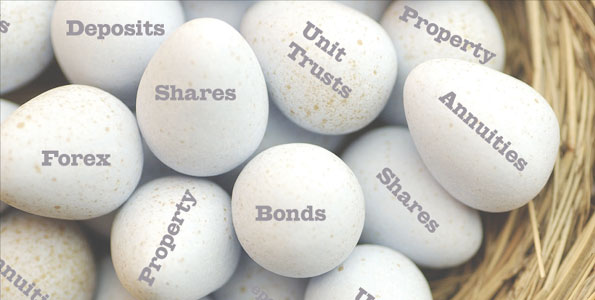“Diversification is always working; sometimes you’ll like the results and sometimes you won’t.” – Larry Swedroe
Traders get to use cool sayings like, “let your winners run, but cut your losers quickly.”
Long-term investors need to periodically do the exact opposite and sell their winners to buy their losers.
Mean reversion rests on the premise of overvalued assets underperforming and undervalued assets outperforming…eventually.
The past 13+ months are a prime example of why investors should stay diversified and rebalance periodically to take advantage of this.
Rebalancing is not only about trimming gains and buying value but also getting back in line with your stated risk profile.
Investing really comes down to regret minimization. Some investors will regret missing out on huge gains while others will regret participating in huge losses. Pick your poison.
Which regret will wear worse on your psyche? Missing out on future gains or future losses?
In the absence of being able to predict the future, diversification is your best option to balance these two regrets.
In 2013, diversified investors regretted not having their entire portfolio in stocks and seeing big gains.
In early 2014, undiversified investors regretted having their entire portfolio in stocks and seeing big losses.
For example, let’s say you hold the following simple portfolio:
- 40% Total U.S. Stock Market Fund (VTI)
- 10% U.S. REITs (VNQ)
- 20% Total International Stock Market Fund (VXUS)
- 30% Total Bond Market Fund (BND)
In 2013, this portfolio gave you a return of roughly 16%. Not bad, but U.S. and international stocks did the heavy lifting, returning around 34% and 15%, respectively. The laggards were REITs (2.4%) and bonds (-2.1%).
Entering 2014 everyone seemed to agree that bonds were going to do terrible from rising rates and stocks would continue their upward climb.
Because markets tend to make the consensus opinion look foolish from time to time, January didn’t follow that script.
In January, stocks sold off as VTI lost 3.2% and VXUS was down 5.4%. REITs and bonds reversed their poor results from 2013 with gains of 4.3% and 1.6%, respectively.
This 40/10/20/30 diversified portfolio ended the month of January with a loss of only 0.5% even though stocks got killed.
Obviously these trends don’t have to continue throughout 2014 as stocks have already made back most of the losses. But this illustrates how things are supposed to work over longer cycles in diversified portfolios.
Last year it was painful to be diversified, but you can’t let one year of performance destroy your long-term plan.
Diversification helps you control your behavior because you never completely miss out on the biggest gains while you never fully participate in the biggest losses.
No one knows exactly which investments are going to perform the best over any given time frame so holding a little bit of everything in line with your stated risk preferences will give you the highest probability of hitting your desired goals. At the end of the day, that’s what we’re all shooting for.
Think of diversification like a periodic lottery payout over time as opposed to getting greedy and taking the lump sum payment (I’ll add this one to the my list of financial analogies).
I’ve seen stats that show a ridiculous amount of lottery winners, around 70%, end up going broke within a short time frame.
Even though mathematically it probably makes sense to take the lump sum, lottery winners would be much better off taking the periodic payouts over time to ensure a continuous income stream so they don’t blow it all at once.
The same logic applies to holding a diversified portfolio. Diversification is never going to give you a huge lump sum payout. The benefits are seen over long time frames as you continue to achieve respectable returns.
You’ll never go broke practicing diversification, but you must be willing to accept short-term regrets in place of long-term ones.
Copyright © A Wealth of Common Sense















